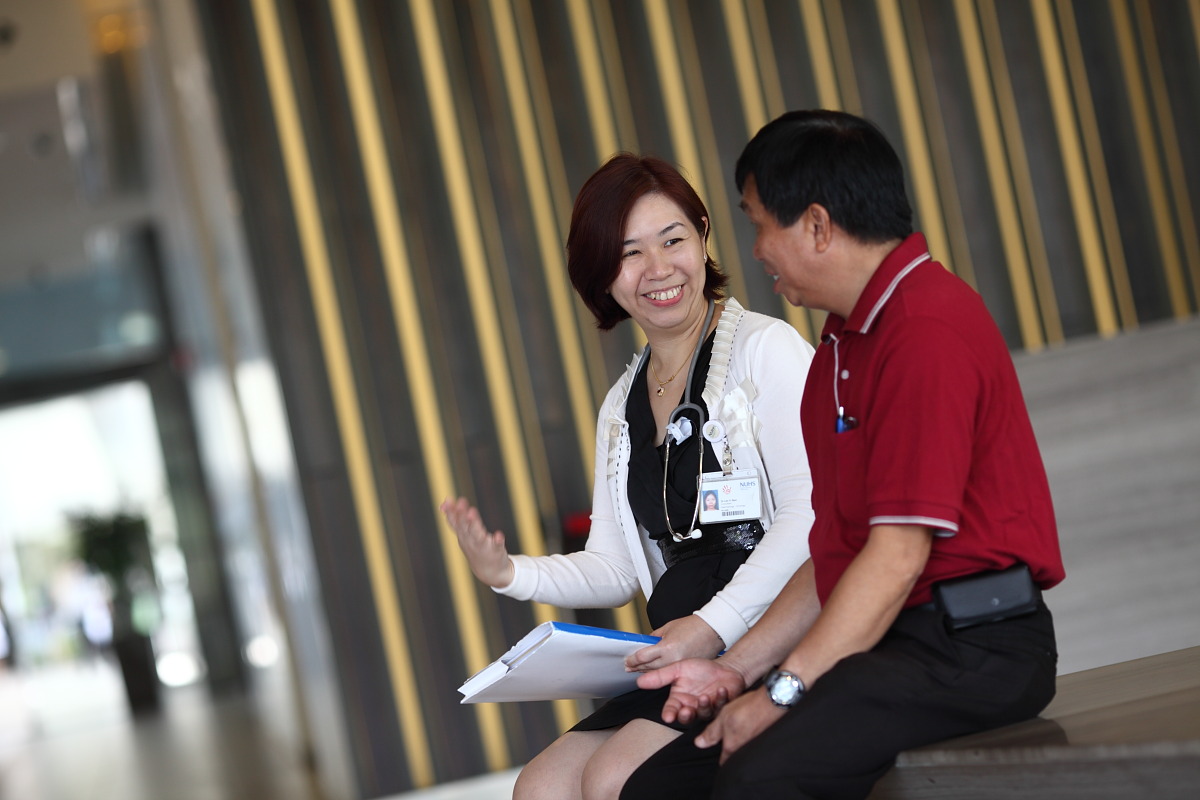
Apart from having to cope with the stress and worry of their cancer diagnosis, cancer patients and their caregivers are also burdened with the stresses brought about by the physically-demanding nature of their treatment process, as well as the short- and long-term side effects that arise from the disease. This might result in emotional distress and psychological problems in patients which could potentially impact their daily lives, be it at work or home.
To help our patients cope better psychologically and emotionally, and to condition them back to the normalcy of everyday life, our Psychosocial Oncology Programme provides a holistic end-to-end care continuum that begins right from the point of diagnosis, to survivorship, recurrence and even end-of-life care by offering a spectrum of services aimed at developing and fulfilling the psychological and social needs of our patients and their caregivers.
Our Psychosocial Oncology Programme renders support to our patients and their caregivers in these areas:
Helping patients and their caregivers cope and understand the cancer journey emotionally from the point of diagnosis, throughout the treatment process, survivorship and even recurrence or towards end-of-life.
Providing financial counselling to patients and their caregivers and offering financial assistance to needy patients and their caregivers by helping them apply for financial assistance schemes.
Ensuring that our patients' nutritional and dietary needs are met during and post-treatment to ensure they lead healthy lives outside the hospital. Also, rehabilitation therapy is provided to maintain our patients' health and facilitate their recovery so they can regain their independence and resume with their daily activities.
Our trained psychologists and oncology nurses will provide psychological counselling and advice to our patients and their caregivers to ease their mental and social stresses or anxiety experienced during their cancer journey.
Living with cancer is not easy and we will help ensure that our patients will be able to reintegrate into society be it at home, or at the workplace.
Some of the services offered under our Psychosocial Oncology Programme include:
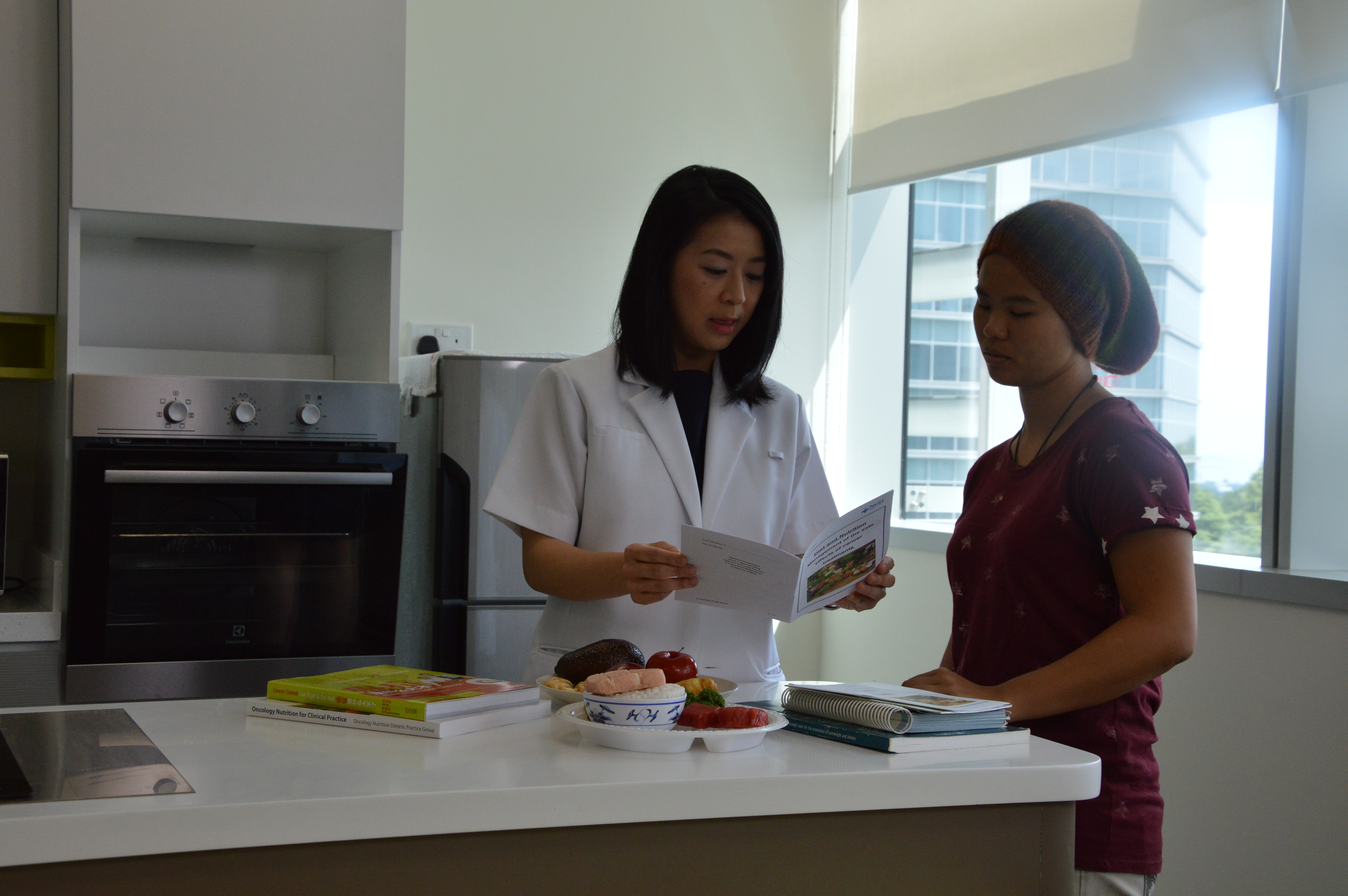
Dietitians provide a wide range of dietetics services to our patients. We provide diet counselling and advice on nutritional therapy, nutritional intake assessment of patients' requirements before planning and designing special diets to suit each individual's medical condition. In addition, we also specialise in planning tube feeding requirements for patients. Besides caring for our patients' nutritional needs, our Dietitians also provide external services to companies such as conducting public talks and workshops on various health topics including cooking demonstrations and nutritional education.
Our Dietitians provide the following range of services to our patients:
Our Dietitians will be able to help you manage your chronic diseases by providing you with individualised dietary advice. Your Dietitian will review your blood results, help you understand your medical condition and provide education about all the important nutrients that can help to manage your condition.
Dietitians practise based on scientific evidence and present substantiated information. You can be assured in knowing that you are obtaining accurate and reliable information.
During your initial visit, your Dietitian will explore and discuss your eating habits and routines, health history, exercise regimens. Your Dietitian will then assess your dietary needs and help you prioritise and set goals. This process usually takes an hour or more. Follow-up visits usually take about 30 minutes. At follow-up visits, your Dietitian will monitor your progress and share further information and necessary adjustments to your diet.
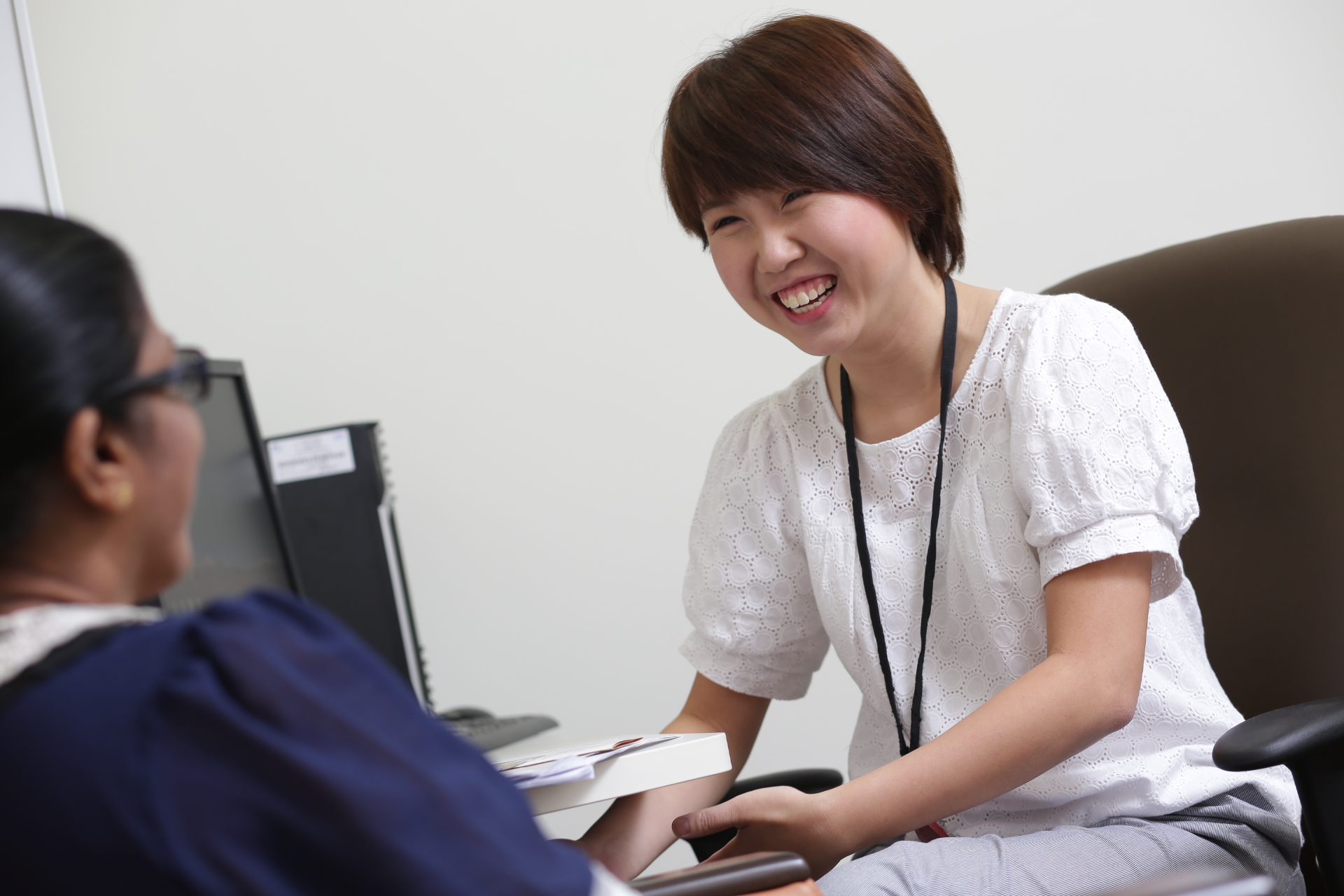
At the NCIS, we have a team of Medical Social Workers working together with our Doctors and medical professionals to provide support for our patients and their loved ones in the course of their illness. They provide assistance in the areas of financial needs, care needs, as well as emotional support to cope with the disease.
If you need to seek assistance from our Medical Social Workers, do speak to your Doctor so that they can help make a referral. Thereafter, your Medical Social Worker will assess your resources and needs before sourcing for suitable funds and resources to ensure that your needs are met. In some cases, financial documents are required so it helps to get these documents ready to facilitate the process.
We provide counselling to patients and their loved ones to help support them in coping with the impact of their medical condition and the resultant life changes.
We assist patients who present with complex psychosocial and discharge-planning needs, conduct timely assessment and interventions to help patients and/or families cope with personal, emotional and biopsychosocial issues affecting hospitalisation and the delivery of care through appropriate linkages with community resources and supportive counselling.
We assess and administer financial assistance for patients or families who have difficulties affording their medical bills. While doing so, we also aim to improve responsiveness and accessibility of financial assistance schemes.
Psychosocial assessment, counselling support, as well as practical assistance are provided to patients who may be admitted under the circumstances of a crisis. This includes patients who experience family violence, sexual assault, self-harm or suicide attempts, abuse and/or neglect, amongst others.
We are involved in clinical supervision to social work students from NUS and are also actively engaged in inter-professional teaching to the medical students from NUS Yong Loo Lin School of Medicine (YLLSoM) through lectures, talks and patient experience attachments. We are also involved in the national MSW Chapter training, as well as regional workgroups with government and voluntary organisations.
The Department runs support groups to further provide educational and emotional support to specific groups of patients and their loved ones. One of their support groups is Kids Connect. Kids Connect is a holiday support programme targeted at children (7 to 12 years old) whose parents or loved ones are impacted by cancer. The group sessions, which comprise play and other creative activities, aim to help children moderate their feelings by providing avenues to express these feelings, and strategies to cope with them.
All Singaporeans are covered by heavy government subsidies of up to 80 per cent of the total hospital bill in acute public hospital wards.
Some of the government-funded schemes include Medisave, MediShield, Medifund and the Medication Assistance Fund.
To find out more about these schemes, visit:
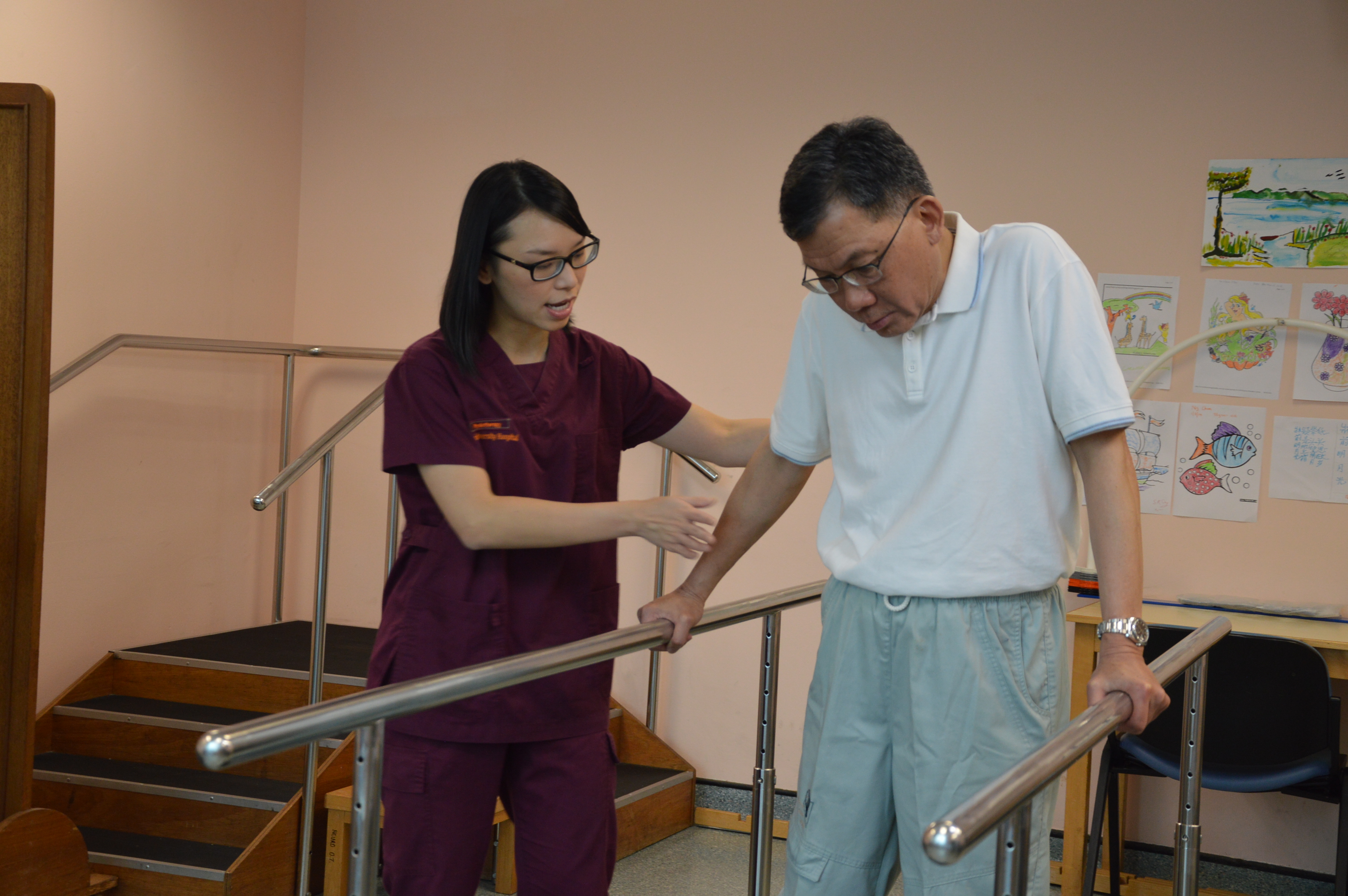
The NUH Rehabilitation Centre, which consists of Occupational Therapists, Physiotherapists, Podiatrists and Speech Therapists, adopts a multi-disciplinary and integrative approach to patient care. Through individual and group therapy sessions, our therapists utilise their professional knowledge, therapeutic skills and resources to address the various needs of patients ranging from children to the elderly.
Physiotherapists help people who are affected by injury, illness or disability through movement and exercise, manual therapy, education and advice. Cancer and its treatment can result in physical problems including, but not limited to pain, fatigue, weakness and decreased endurance. These may interfere with your life in physical, emotional and practical ways. Throughout the continuum of cancer care, physiotherapists provide a wide range of therapies that can help you maintain your health, facilitate recovery, regain independence, reduce stress and maintain the energy you need to participate in the activities that are important to you.
Our services include (but not limited to):
Occupational Therapy is a person-centred health profession concerned with promoting health and well-being through facilitating engagement in meaningful occupational roles and activities. Occupational therapy interventions aim to optimise participation in everyday activities including self-care, work and leisure. We achieve this by enhancing clients' ability to engage, or by modifying activities or the environment to support their occupational engagement.
Occupational therapy can benefit individuals throughout the continuum of cancer care from diagnosis to survivorship or palliation. Some examples can include:
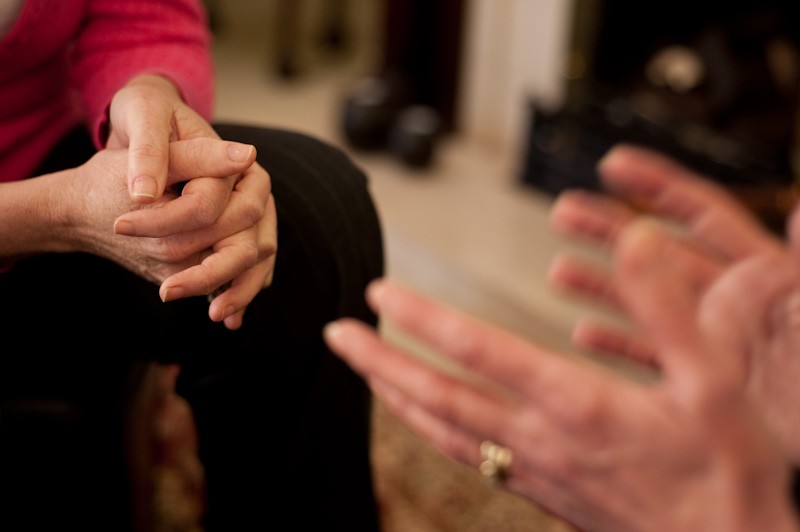
The Psycho-Oncology service is provided by the Department of Psychological Medicine in the National University Hospital. Psychiatrists and psychologists with experience caring for cancer patients will provide assessment and formulate management plans for pre-existing or recent onset psychiatric and psychological problems. The service is provided in both inpatient and ambulatory settings and referrals are through your Oncologist.
First visit assessments and most follow-up care is provided in clinics at the NCIS enabling a one-stop service for patients. For some patients, however, follow-up care may be provided at the Neuroscience Clinic.
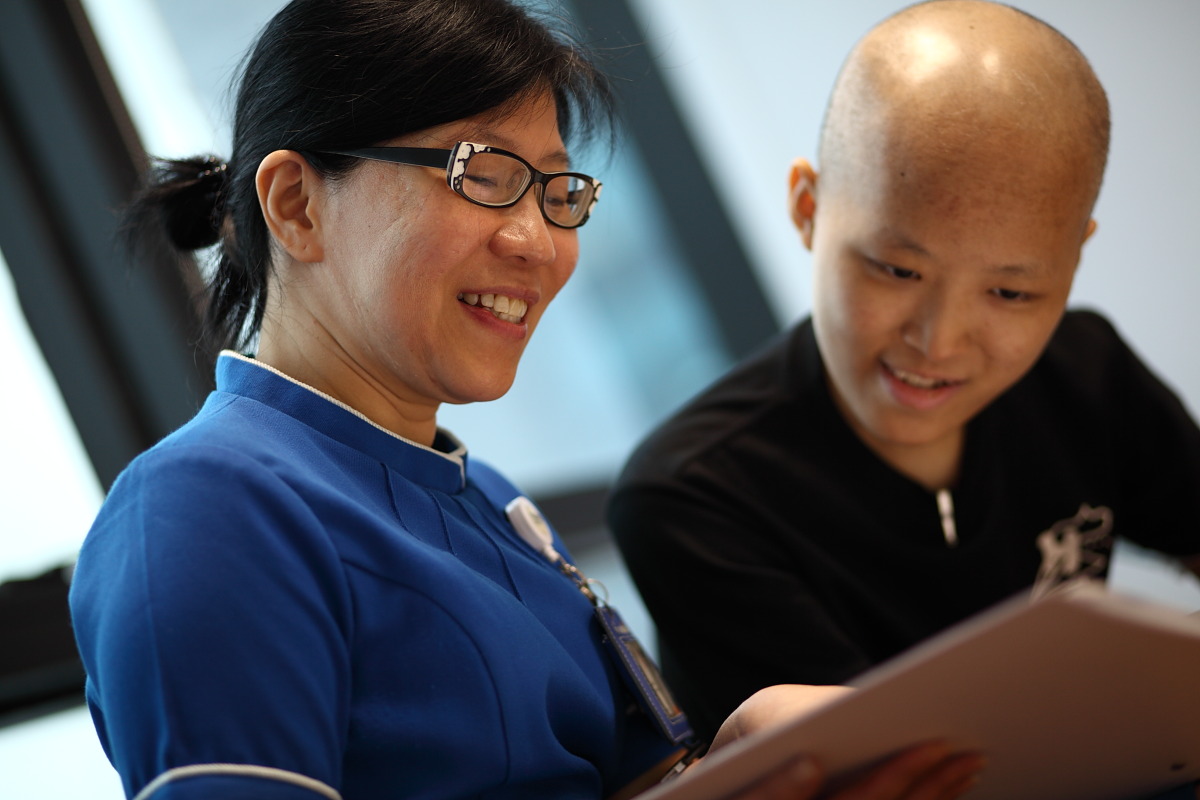
The Nurse Counselling team provides a range of services in enabling our patients and their significant others to cope psycho-emotionally with their cancer diagnoses and treatment. Our trained oncology nurses assess patients' psycho-emotional coping and intervene early through distress counseling. We provide a safe haven for patients to unload their distressing thoughts and emotions, and empower patients in improving their overall well-being via the provision of counselling and psycho-education.
Some of the services we provide include:
The Nurse Counselling team will support patients psycho-emotionally and practically throughout their illness trajectory. From helping one to identify/clarify his/her fears and worries, to keeping one's anxiety and low mood to tolerable levels, the team aims to assist patients in devising their own personalised solutions to their perceived challenges. By providing evidence-based information and reliable care advice, the team hopes to enable patients in retaining their sense of control and engagement in life-meaningful activities during this stressful chapter of their lives.
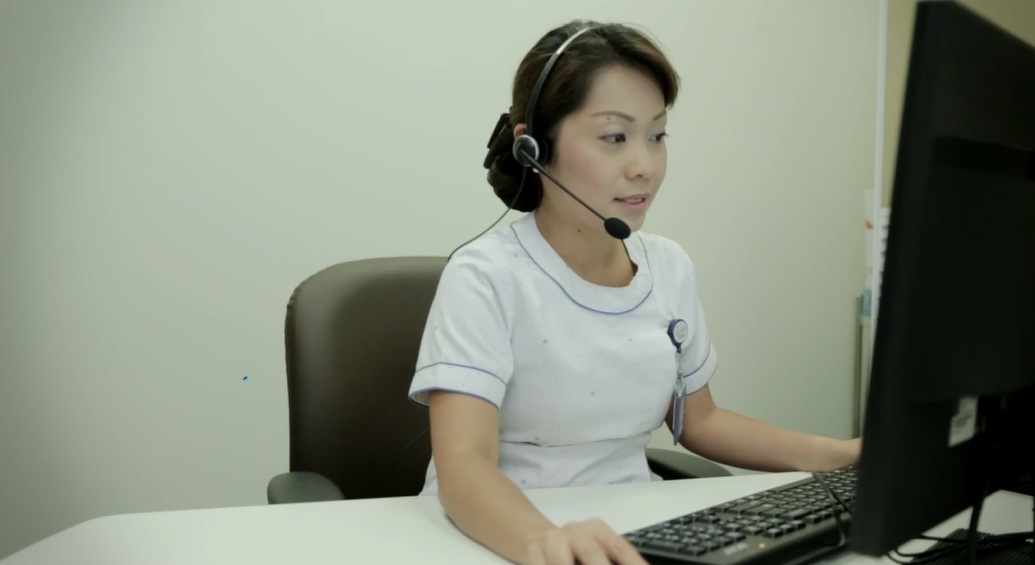
Established in 2001, Cancerline is a free, anonymous, confidential information and counselling service on cancer related issues managed by our trained Oncology Nurses. It is catered to diagnosed cancer patients, their caregivers, general public and health care professionals.
The aim of CancerLine is to:
CancerLine provides patients with an avenue to gain knowledge about cancer, how to manage it and the various treatment options available. It will also help empower patients' symptom mangement skills during treatment.
In addition, patients will be able to gain support through links with local community services as well as get emotional support to reduce their anxiety level and increase their self-esteem.
CancerLine operates from Mondays to Fridays between 8.30am - 5.30pm (excluding Public Holidays).
Call +65 9722 0569 or email [email protected].
For queries regarding any of our Psychosocial Oncology services, kindly call +65 6773 7888 or speak to your Oncologist.